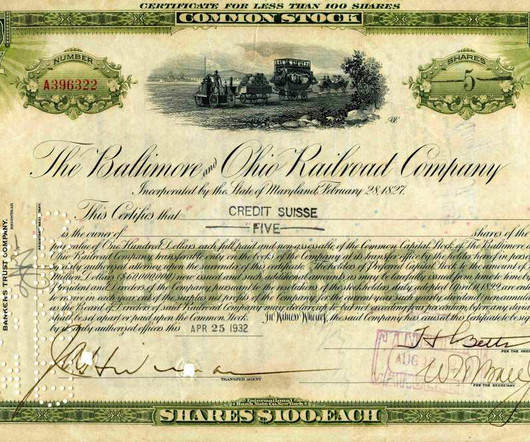The New Role of Private Equity Firms
Erik A. Lopez
OCTOBER 26, 2015
The following is a guest post from Nate Nead, an investment banking Director at Merit Harbor Group, LLC. Nate’s practice focuses on software, technology, energy and manufacturing. He and the Merit Harbor team work with middle-market business owners looking to grow, acquire or sell companies in the $10mm to $100mm valuation range. He works out of the company’s Seattle office.
















Let's personalize your content